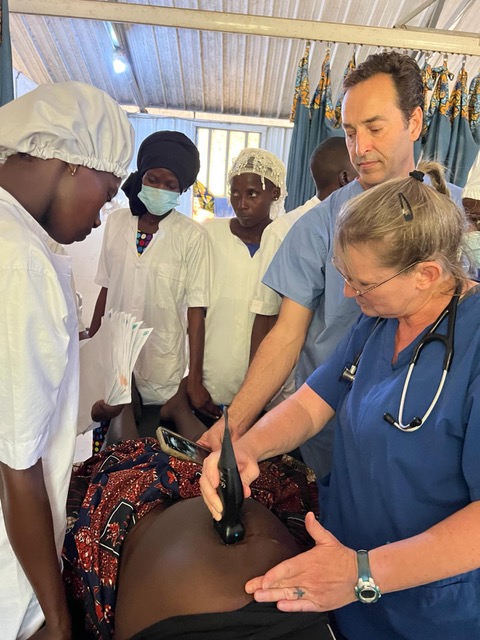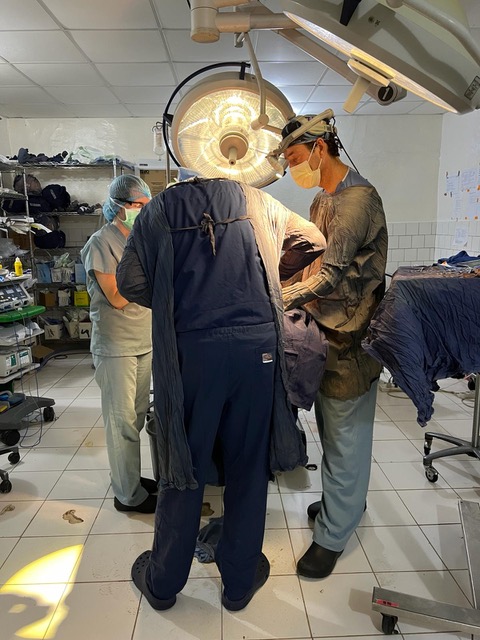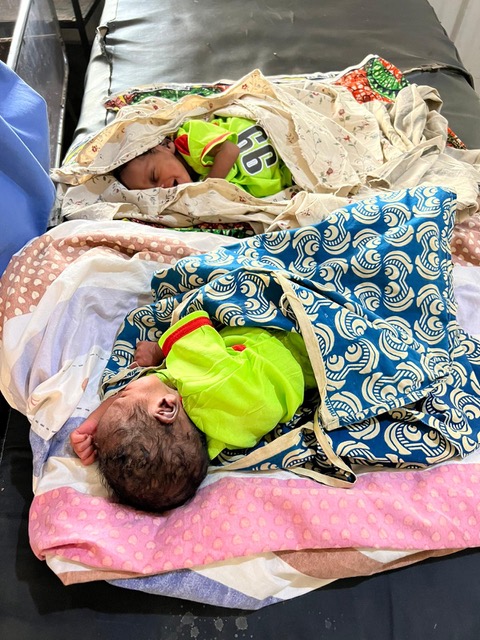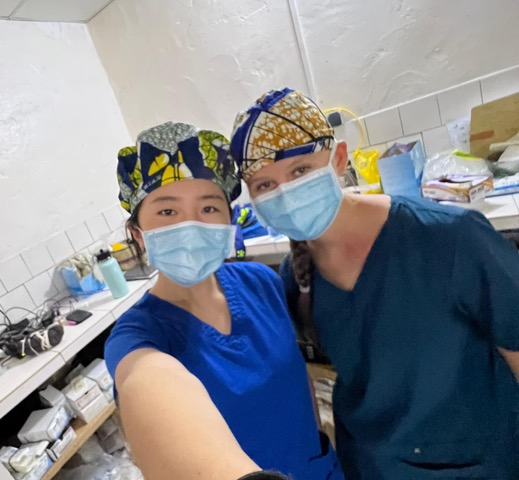Dear reader,
My name is Miah Davis. I am 17 years old, and am graduating high school in June of 2024. I shall be attending Walla Walla University to take either medical or nursing prerequisites, and aspire to be either a CRNA or anesthesiologist someday.
I was granted an opportunity to go to Bèrè, Chad as part of a medical mission trip team. I embarked on the journey with no expectations really, but I gradually became astonished by the rusticity of Bèrè Adventist Hospital. When I first walked into the various wards—maternity, pediatrics, adult, surgical—the simple spaces were not a surprise. It was not until I went on rounds and spent many hours in the operating room (OR) over the next few days that I realized two things: 1) how lucky I, as an American, am to live in a country with such advanced health care and 2) how great of a God I believe in.
I have heard many people in the US complain about the cost of healthcare, whether that be the cost of birthing in a hospital, attaining cancer treatment, or getting insulin needed to survive with diabetes. I do agree that such things are dreadfully overpriced in the US, but I have now seen a place without them. In the US, there is consistent pre-natal care and multiple options for a safe birth, In Bèrè, birthing mothers can only be monitored, given epidurals, and taken in for c-sections. Sometimes the beds the women give birth on break during labor. Cancer treatment is surgery, and if surgery cannot get rid of it, there is nothing more the doctors can do. Diabetics are given a syringe and enough insulin to last a month. At the end of the month, the individual comes for a refill and a replacement of the now very dull syringe needle. Therefore, despite the hardships, I think that US residents should be more grateful for the medical technology it has.
In the US, sanitation and privacy are highly valued. The Bèrè wards, excluding the OR, contain beds lining the walls, no privacy anywhere. There are curtains for doors, and concrete floors. Doctors and nurses do most of the physical exams without gloves to preserve the limited supply of gloves for the cases that truly require them.
The Bèrè OR is the most basic an OR can be. Patients have consults in the OR waiting area, and do post-surgery stuff in a partially partitioned off space behind the waiting area. The two operating rooms are the two rooms in the entire hospital compound to have air conditioning despite the extreme heat (at least to us Americans). Unlike the US OR’s and their seamless floors and positive pressure, the OR floor not only has atmospheric pressure and seams, but there are also holes and bloodstains on the floor. The anesthesia machine only relays blood pressure and heart rate. It does not show the telemetry or the information from the cardiac monitor. There are often up to 10 aspiring nurses crowded into the room during an operation trying to learn. IV’s and syringes are reused, and fluid is often transferred from non-sanitary to sanitary syringes. Glove fingers are used as drainage capsules. Surgeons from the US will often ask for a certain tool only to be told that the hospital does not have one. Scrubbing down for surgeries is taken very seriously, but I am sure many US doctors would still gasp in horror.
I have seen many patients here in Bèrè with afflictions—typhoid, abscesses from dental infections, malaria, etc—that are virtually non existent in the US. I have been able to observe, and assist in surgeries that teach me so much about the human anatomy. I have experienced what it is like to not have advanced medicine like the US does. Most of all, I have seen the human body and its interworking parts in ways that only further solidify my belief in God Our Creator. The body heals wounds, protects against internal foreign objects, and recovers from surgical procedures. In my mind, this can not be in accident. It is a beautiful masterpiece of God’s craftsmanship.
This trip has been life changing. The people here—locals, missionaries, and OR staff—have found their way into my heart, and I am so grateful that I have the chance to spend two weeks in Bèrè, Chad.
Sincerely,
Miah Davis




